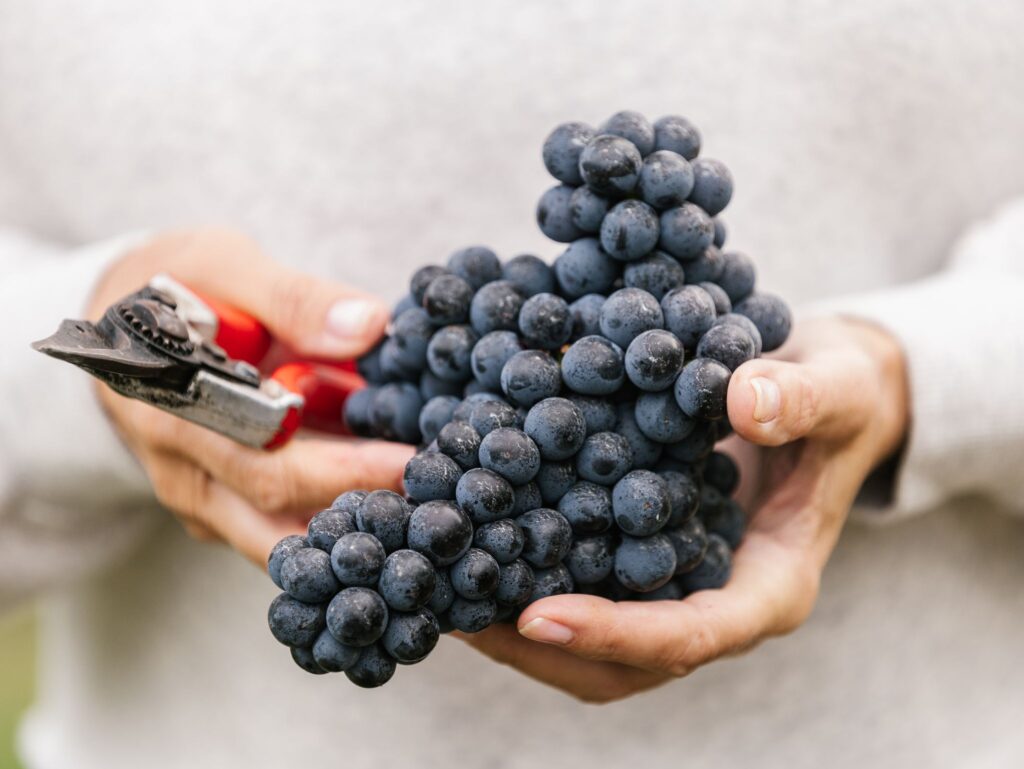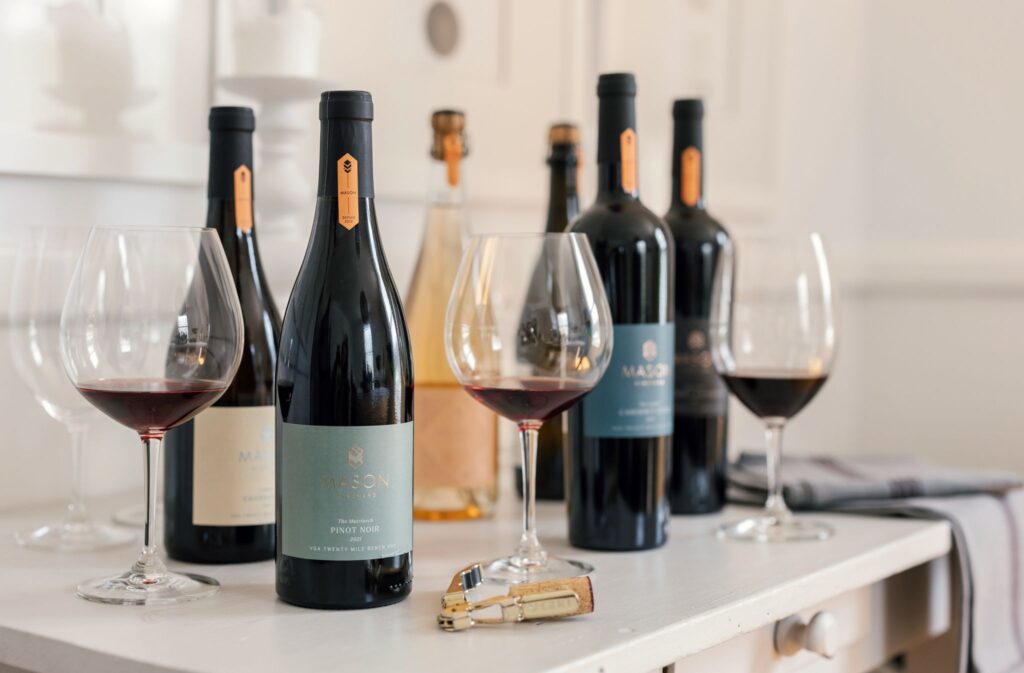Winemaker Kelly Mason, owner and founder of Mason Vineyard, brought a wealth of wine knowledge when she launched her winery in 2021. Mason’s winemaking career began in 2007 with an internship at Saintsbury Winery in the Carneros subregion of Napa Valley. She then returned to Canada to pursue Winemaking at Brock University, focusing on Pinot Noir and Chardonnay and becoming an expert in Burgundian varietals. This expertise led Mason to become head winemaker at Domaine Queylus, Honsberger Estates, and The Farm winery in the Niagara Region. Juggling these roles, Mason successfully etablished Mason Vineyard in 2021. Here, she intricately crafts Pinot Noir, Chardonnay, and Cabernet Franc wines sourced from estate single vineyards. In our conversation with Mason, we delved into her journey in starting the winery, the future of Ontario wines, and the unique aspects that make winemaking special.
How did Mason Vineyard come to be? What inspired you to buy your vineyard?
“The dream was always to have my own vineyard and make my own wine. I made the decision in the summer of 2020 to start developing my brand, my label, and my winemaking vision. When I think of it, really, I have been quietly creating this brand over the past ten years by owning and working in my vineyard. Caring for the vines and following each season gave me a chance to learn a lot about each vine and its ‘personality.’ It has always been exciting! Due to the scale of my production for Mason Vineyard (only the size of my existing vineyard), my releases are announced to my mailing list, which keeps it personal, allowing me to connect with each interested person.”
Become an S Insider
The latest in fashion, beauty, design, and arts & culture.
Do you have a favourite wine to make? What makes it special to you?
“Definitely Pinot Noir. It has been my long-time favourite wine to make, especially off my own vineyard, because I can drop leaves, clusters, shoots, and vertically shoot position until it makes me happy. There are no economics to my vineyard expenses for Pinot Noir. I don’t care. It just needs to be a certain way based on the growing season that year. Pinot noir speaks to me. It’s needy in terms of airflow, personal space, and weather. In my vineyard, I am starting to understand my old vines better, and I love the depth and flavours of the wine. It’s such a pain, but when it’s right, it’s so beautiful. I am always chasing that and trying to capture it in a bottle.”

Can you tell us more about the tasting experiences offered at Mason Vineyard?
“When I release a new vintage, I will open up tastings by appointment only for a few weekends over the summer. The tastings are open to about 10-12 people per seating and I host them. We taste through the current portfolio and occasionally a surprise back vintage. It is informal and yet as informative as each group desires. Great conversations arise and we all have a common love of wine.”
How does Mason differ from your previous experience at Honsberger Estate Winery, The Farm, and Domaine Queylus?
“We do things differently at Mason Vineyard. I’ve always felt that people who really love exceptional wine are looking for exceptional, more personalized wine experiences with the people who make the wine. They deserve it.
It is a growing trend among wineries like Mason Vineyard to be appointment only and only host Taste & Shop style sessions for small groups of winelovers looking to buy wine. Once we release a new vintage, we open the calendar for a few summer weekends for people to reserve a date to visit and taste the current portfolio as well as the occasional surprise back vintage. Dates are announced through our mailing list first, followed by a general call on Instagram @masonvineyard.”

What do you see for the future of Mason Vineyard, and Ontario Winemaking overall?
“For Mason Vineyard, the future will have more great Winemakers to collaborate with for my Collab Series label along with more visibility of the Mason Vineyard wines. We are in the phase of introducing more customers to the wines and showcasing the specialness of Bench wines.
For Ontario, aside from a handful of large national producers, the Canadian wine industry trends towards smaller wineries that create interesting small lot wines that express their soil and microclimate – their local personality. Perhaps as we go forward, we are starting to see Ontario wine as a craft product, and more purchases are happening online, directly, and from small independent bottle shops and restaurants that find unique wines that don’t make it to the shelves of government retail and grocery. It’s the maturing of the market — let’s go the rest of the way like other regions around the world. We need to introduce more consumers to these purchasing channels and great wines and all of us should be proud to open our wines on tables alongside other global wines. As a whole, we need to keep kicking and get everyone on board pouring Ontario wine in their glasses so yeah, where are we going? Moving on up.”

